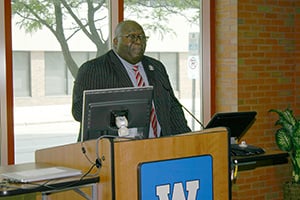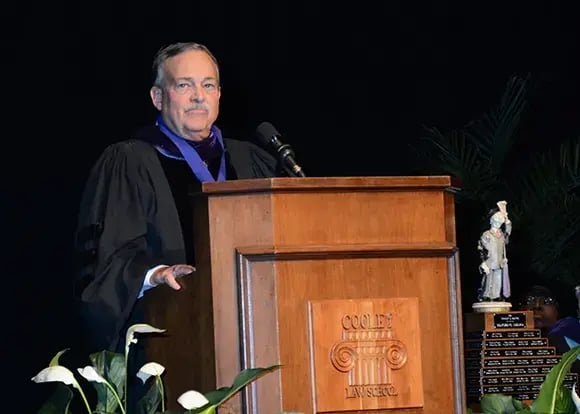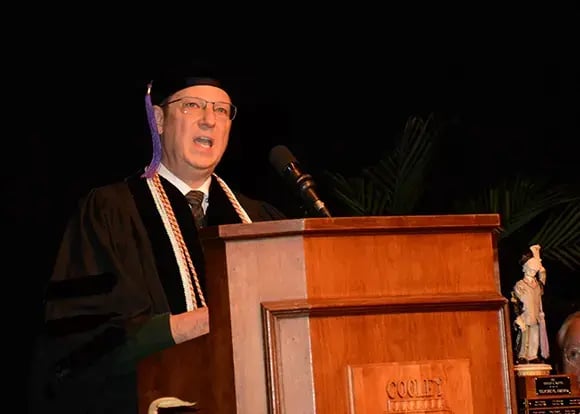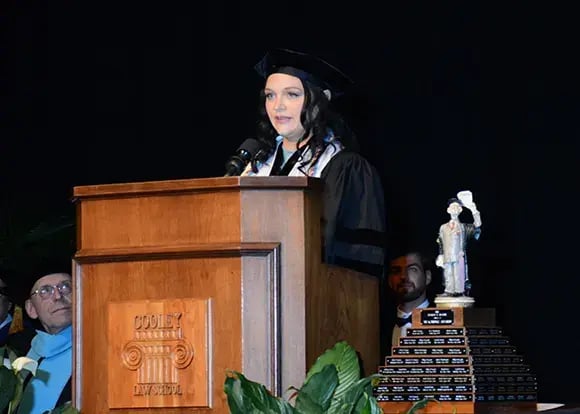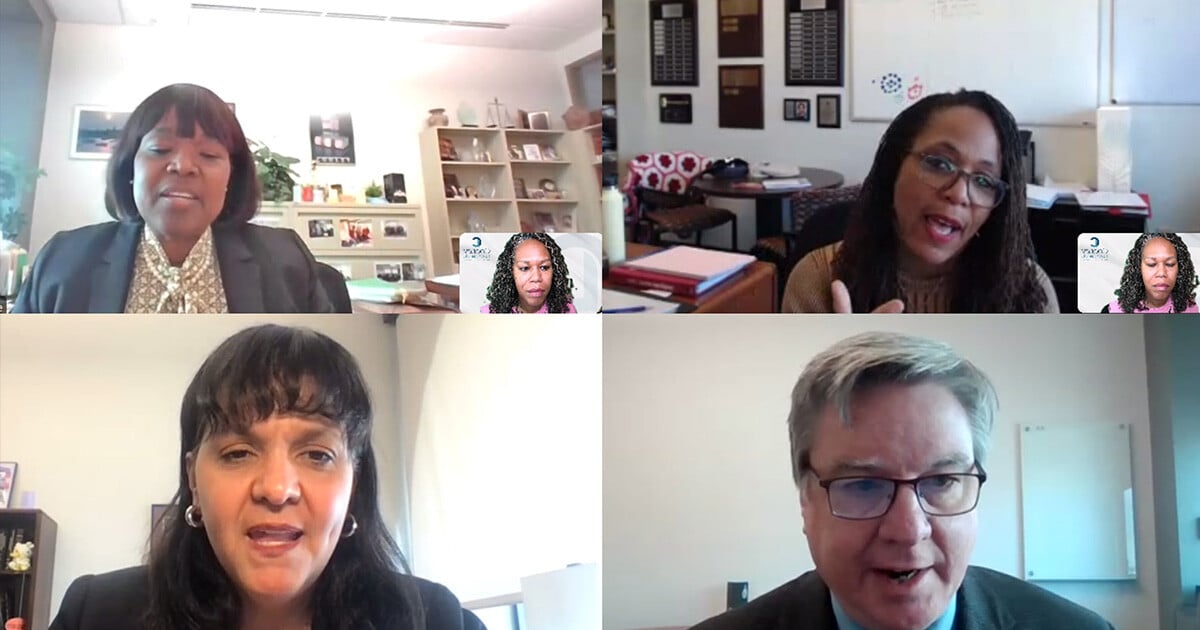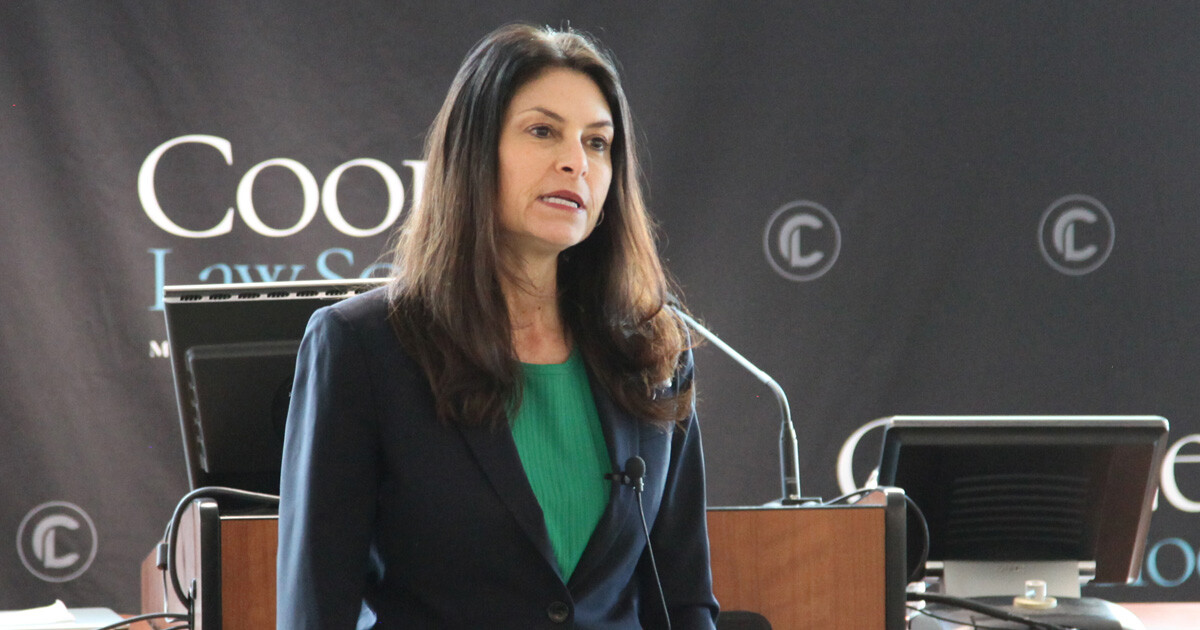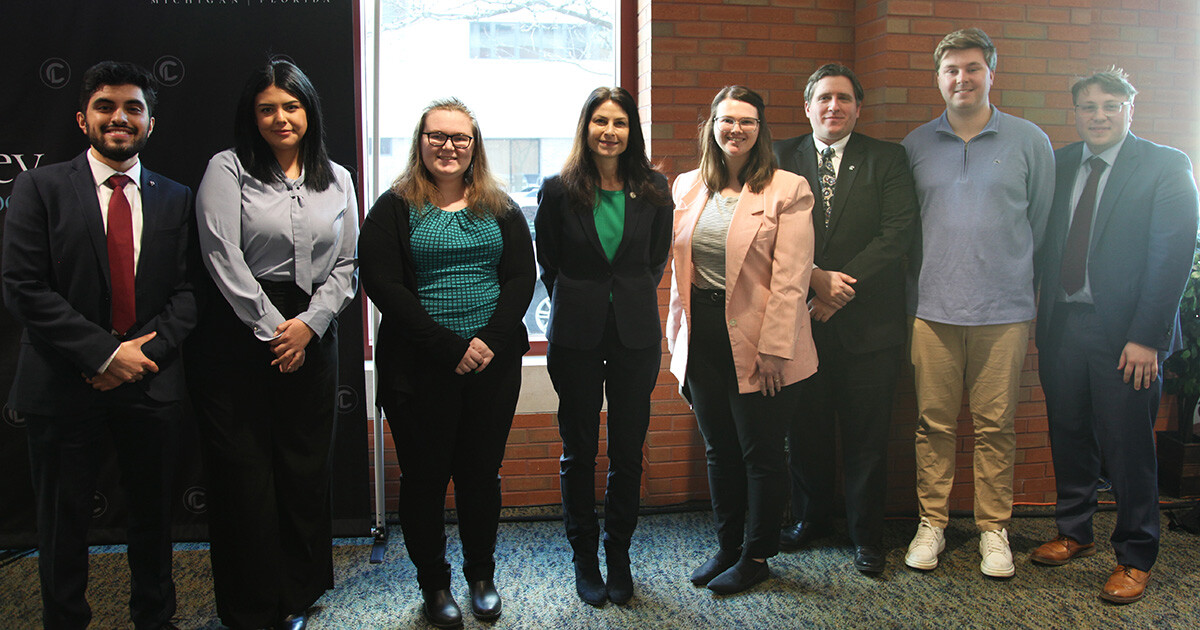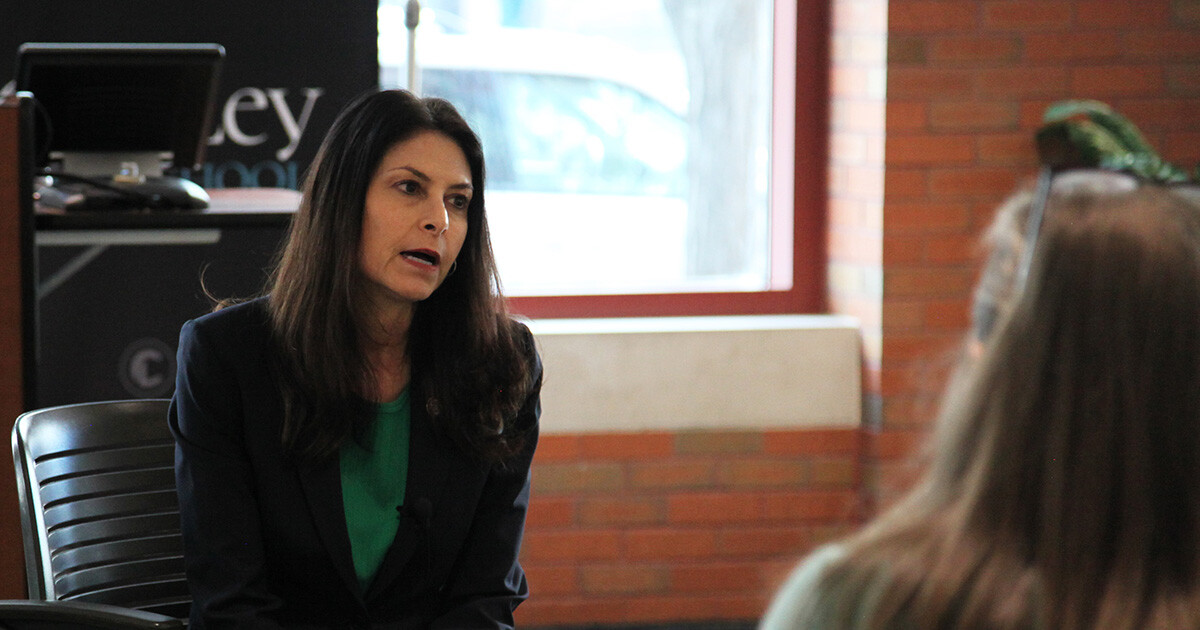Cooley Law School Holds Winter Commencement for Tampa Bay Campus
TAMPA, Fla. – Graduates of Cooley Law School’s Tampa Bay campus were honored during a commencement ceremony at the New Tampa Performing Arts Center on Dec. 16.
Fifty-seven juris doctor degrees and master of laws degrees were presented to members of Cooley Law School’s Ruth Bader Ginsburg Class and Chief Justice William H. Rehnquist Class.
Chosen by their peers, Paulina Lopera and Madison Mann gave the class farewell remarks. The Hon. Nick Nazaretian of Florida’s 13th Judicial Court delivered the keynote speech.
“To my fellow graduates, what a journey this has been – it has not been an easy feat,” Lopera said in her remarks. “We’ve tackled late-night sessions, countless cups of coffee and probably more breakdowns than we’d like to admit, but we persevered. We navigated highs and lows, balancing internships, part time jobs and personal commitments, all while holding onto our vision of success. Each of us took a unique path to get here. Some of us overcame personal struggles, some juggled full-time jobs and some raised families while doing it. Regardless of how you got here, what matters is that we made it. We are a testament of resilience, determination and grit.”
“Being a lawyer is more than a job, it’s a calling,” Mann said in his remarks. “A calling to serve others and to pursue justice even when that path is difficult. It’s about using the power of the law to uplift, protect and create positive change. Whether we are advocating for a client, drafting a policy, or working to make the system more equitable, our job has the potential to shape lives. And that is a huge responsibility, but it is also a privilege.”
In his keynote address, Judge Nazaretian spoke about his own experience at Cooley Law School, reflecting on his role at the school’s orientation and the opportunity to watch students grow. He also emphasized the importance of hard work and to always pursue personal growth, even after completing schooling.
“You leave here as lawyers – this chapter is done, well written by you all,” Judge Nazaretian advised the graduates. “Tomorrow’s next chapter needs to be written. Your pages are empty. We’ve given you a pen and I look forward to continue reading your stories. Go have a great time tonight, we’re not here for a long time, we’re here for a good time.”
Each Cooley Law School class is named for a distinguished member of the legal profession. The commencement ceremony for Cooley’s winter graduating class honored U.S. Supreme Court Justice Ruth Bader Ginsburg and Chief Justice William H. Rehnquist.
Ruth Bader Ginsburg graduated from James Madison High School then attended Cornell University, where she earned a bachelor’s degree in government, graduating Phi Beta Kappa and first of her class. She then went on to attend Harvard Law School for two years, before life circumstance necessitated and she transferred to Columbia Law School her final year. She won a two-year clerkship with U.S. District Judge Edmund L. Palmieri, then accepted a research position at Columbia that took her to Sweden. She taught at Rutgers University Law School from 1963-1972; and from 1972-1980, she taught at Columbia, where she became the school’s first female tenured professor. During the 1970s, she worked for the ACLU and eventually became director of its newly established Women’s Rights Project. In this role, she argued six cases before the Supreme Court, winning five of them. Ginsburg was appointed to the U.S. Court of Appeals for the District of Columbia by President Carter in 1980. In 1983, President Clinton appointed her to the U.S. Supreme Court to fill the seat vacated by Justice Byron White.
William Hubbs Rehnquist graduated from high school in Shorewood, Wisconsin, and attended Kenyon College in Ohio for a year before joining the Army Air Corp in 1943 and serving for the next three years as a weather observer in North Africa. After World War II, with the help of the GI Bill and by working a steady stream of part-time jobs, Rehnquist attended Stanford University where he earned a bachelor’s and master’s degree in political science. He then earned a master’s degree in government from Harvard before returning to Stanford where he earned his law degree, graduating first in his class in 1952. Rehnquist then clerked for Justice Robert H. Jackson, and wrote a memorandum for Justice Jackson as the court was considering Brown v. Board of Education (1954). In 1953, Rehnquist married Natalie Cornell and moved to Phoenix, Ariz., where Rehnquist practiced law until 1969. He was then appointed by President Richard Nixon to serve as deputy attorney general in the Office of Legal Counsel of the Justice Department. In October 1971, upon the retirement of Justice John Marshall Harlan, Nixon nominated Rehnquist to fill the vacancy of the U.S. Supreme Court. In 1986, when Chief Justice Burger retired, Rehnquist was appointed chief justice.
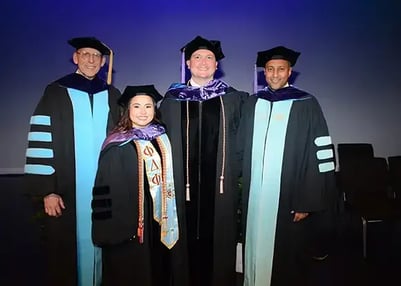
Graduates of Cooley Law School’s Tampa Bay campus were honored during a commencement ceremony at the New Tampa Performing Arts Center on Dec. 16. Pictured from left to right are: Cooley Law School President and Dean James McGrath, Paulina Lopera, Madison Mann, and Cooley Board member Mustafa Ameen.
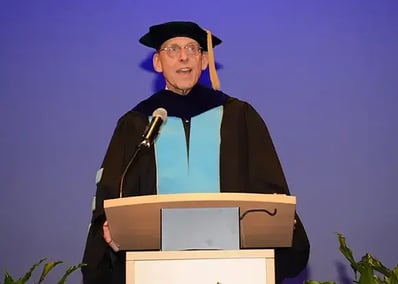
Cooley Law School President and Dean James McGrath speaks to graduates of the law school’s Tampa Bay campus during the commencement ceremony at the New Tampa Performing Arts Center on Dec. 16.
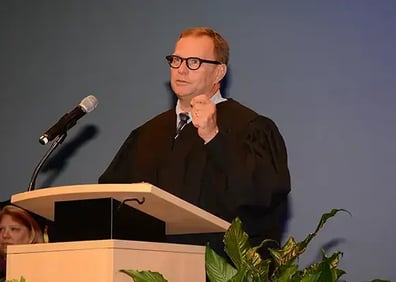
The Hon. Nick Nazaretian of Florida’s 13th Judicial Court delivers the keynote speech during Cooley Law School’s commencement ceremony at the New Tampa Performing Arts Center on Dec. 16.

Cooley Law School was founded on a mission of equal access to a legal education and offers admission to a diverse group of qualified applicants across the country.
Since the law school's founding in 1972, Cooley has provided a modern legal education to more than 21,000 graduates, teaching the practical skills necessary for a seamless transition from academia to the real world. An independent, non-profit law school, accredited by both the American Bar Association and the Higher Learning Commission of the North Central Association of Colleges and Schools, Cooley holds classes year-round at its Michigan and Florida campuses.
